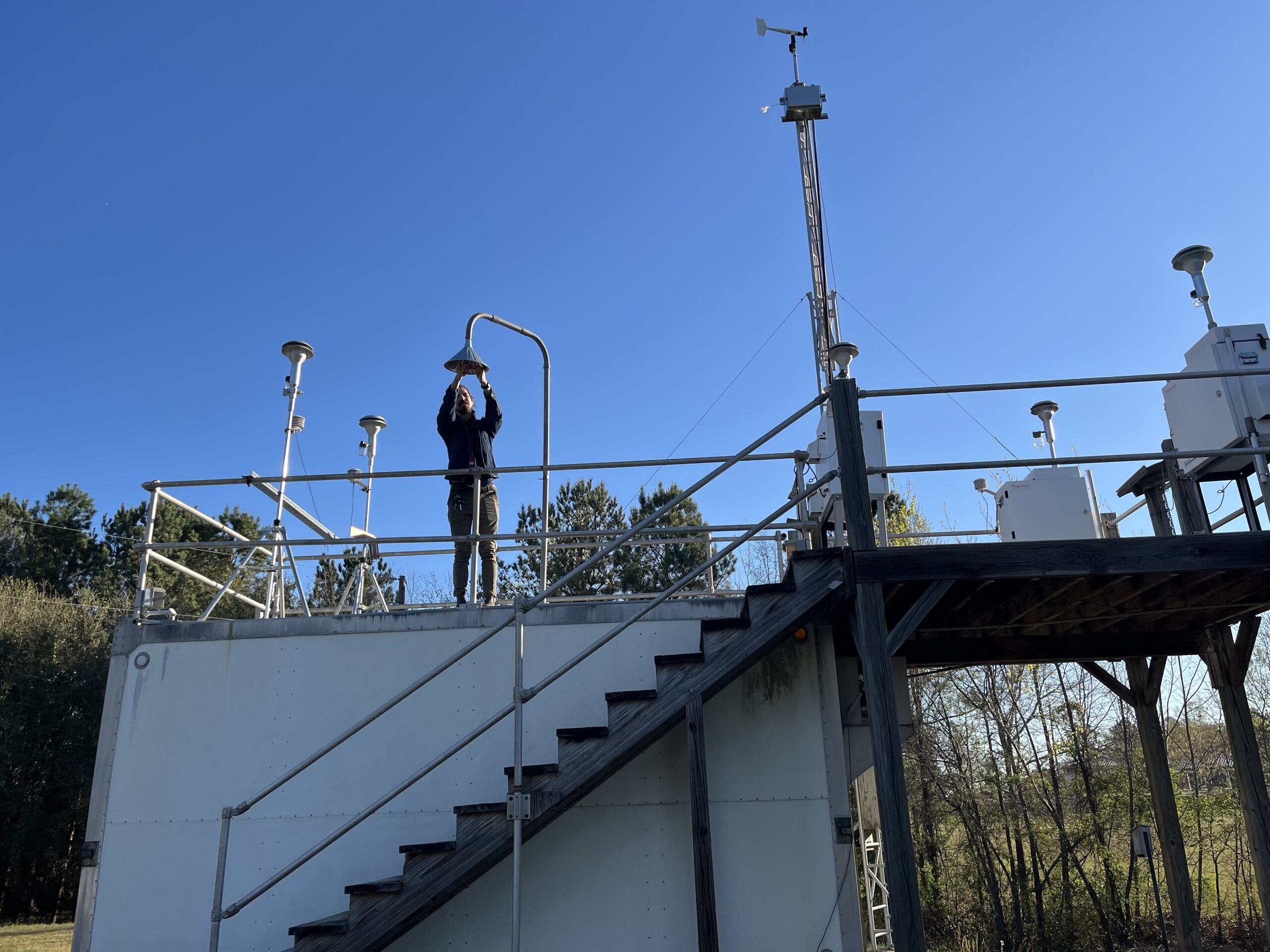During National Air Quality Awareness Week, SCDES Spotlights South Carolina’s Clean Air
FOR IMMEDIATE RELEASE:
May 6, 2025
COLUMBIA, S.C. ― This year, May 5-9 is recognized as National Air Quality Awareness Week, an initiative for informing the public about the importance of clean air and the factors that contribute to air pollution. In South Carolina, the Air Program within the South Carolina Department of Environmental Services (SCDES) works every day to protect the state’s air for residents and visitors alike.
South Carolina currently meets all National Ambient Air Quality Standards (NAAQS) for all six principal pollutants: particulate matter, ozone, carbon monoxide, sulfur dioxide, nitrogen dioxide and lead. These NAAQS were established by the U.S. Environmental Protection Agency and are used across the nation as guidelines for protecting the air that people breathe.
“Not only does South Carolina have clean air, but our state’s air quality has been improving over the years,” said Rhonda Thompson, Chief of SCDES’s Bureau of Air Quality. “This is in large part due to the support we receive from local air quality coalitions, industries, schools, local governments and other stakeholders for continually wanting to improve South Carolina's clean air.”

SCDES’s Air Program ― which includes the Bureau of Air Quality, the Bureau of Regional and Laboratory Service’s air laboratory, and SCDES regional offices ― develops and implements strategies to reduce air pollution and maintain the quality of South Carolina’s air, including:
- Writing and updating air quality regulations and plans, tracking air emissions data and trends, performing air dispersion modeling analyses and ozone forecasts, implementing both federal and state air toxics programs and the accidental release prevention program, and providing grant funding to reduce diesel emissions from mobile sources.
- Reviewing permit applications and issuing air-quality construction and operating permits to industrial, commercial, and institutional facilities that emit regulated air pollutants.
- Inspecting regulated facilities, responding to residents’ complaints or concerns, reviewing compliance reports, taking enforcement actions (including the issuance of fines for air quality violations), enforcing the state’s open-burning laws, and implementing federal and state asbestos abatement programs.
Additionally, SCDES operates 23 air monitoring stations throughout the state to measure outdoor air quality and monitor ozone levels from March 31 to September 30 each year to provide ozone forecasts. These ozone forecasts help the public make healthy decisions about outdoor activities, as high concentrations of ground-level ozone can create breathing problems, especially for children, people with asthma or other respiratory problems and adults who work or exercise outdoors.
“Another important focus of National Air Quality Awareness Week is to remind that public that there are several actions we all can incorporate into our daily routines to help protect our air,” said Thompson, who also serves as past-president of the Carolinas Air Pollution Control Association and vice president of the Southeastern Air Pollution Control Agencies.
Efforts to help keep air clean include:
- Using electric-powered lawn equipment. Gasoline-powered lawn equipment emits airborne pollutants.
- Maintaining your vehicle. A well-maintained vehicle can reduce harmful emissions and improve vehicle performance and fuel economy.
- Combining trips and errands and shopping local to lower vehicle miles traveled, save time and money and reduce emissions.
- Parking instead of waiting in line at drive-throughs to reduce idling time. Idling wastes gas, emits harmful emissions and can have a negative effect on the life of your engine.
New and historic air quality data that are collected by SCDES and reported to the EPA are available at AirNow.gov, an online resource operated by EPA's Office of Air Quality Planning and Standards. SCDES also submits an annual emissions inventory to the EPA.
Learn more about SCDES’s ambient air monitoring data, ozone forecasts, and other air quality information at des.sc.gov/air. Sign up for South Carolina air quality alerts at enviroflash.info.
###

